Student Blog
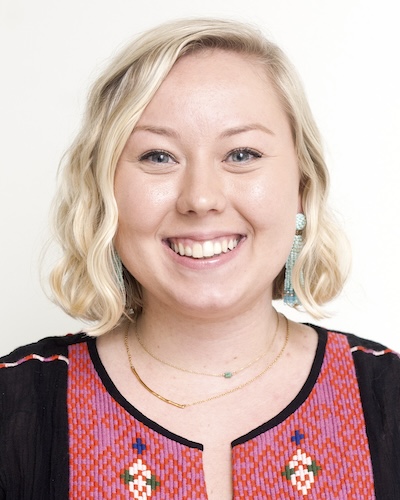
Externship Excitement ⟩
February 20, 2018, by Caroline
In a couple of days, I’ll be leaving for a two week stay in Australia — and it’s part of a class assignment! The leadership externship is part of OT 540: Leadership Capstone, which all second year students take during the spring semester. The leadership externship is a two-week, student-driven experience designed to build leadership, communication, and professionalism skills, and further explore topics covered in OT 540.
The vision of the Chan Division of Occupational Science and Occupational Therapy states: “Our vision is to be one of the world’s leading academic programs in occupational science and occupational therapy — and to develop expert, compassionate leaders who improve the health and well-being of individuals and society.” Not only does USC teach us how to be occupational therapists, it also teaches us how to be leaders in the field of occupational therapy, and the leadership externship helps get us there.
I think it’s incredible that the faculty is willing to give second year students a break from classes in the middle of the semester in order to accommodate this unique learning experience.
Students can design their externship to fit their interests and career goals. I have classmates who will be shadowing university and hospital directors and administrators, working with advocacy or cultural groups, and volunteering for a special interest group. Other students choose to take the AMPS (Assessment of Motor and Process Skills) certification class, which adds a tool to their evaluation toolbox as an entry-level practitioner out in the field. On average, 1/3 of the class chooses to plan an international externship experience to learn more about OT in the global context. I have friends preparing to travel to Ghana, South Korea, Denmark, Japan, Peru, Ireland, and more — how awesome is that?! The Global Initiatives Office, headed by Dr. Danny Park, has connections with a number of OT programs across the world, and provides a lot of support and resources to students interested in planning an international externship experience.
The opportunity to travel and learn more about OT internationally is unique and was one of the reasons I chose to study at USC. This is an opportunity I’ve been looking forward to since starting in the program, so I’m really excited that it’s finally here! I’ll be spending two weeks at Griffith University in the Gold Coast of Australia, along with 5 other classmates. While there, I hope to learn more about their OT curriculum and Occupational Science, visit various clinical sites in the area, make presentations to the students, faculty, and practitioners, and build lasting professional relationships.
Our one week spring break immediately follows the two weeks of externship, so a lot of students are capitalizing on this timing and stay abroad the extra week for personal travel. I’m using the extra week to visit Sydney, Australia and Auckland, New Zealand! It’s been a busy couple weeks planning for this three-week excursion (How many clinical sites can we find time to visit? How many Koalas can I hold?!), but I’m getting more and more excited as it gets closer. I’m looking forward to sharing my experiences and reflections on the blog after I return. Australia, here I come!!
⋯
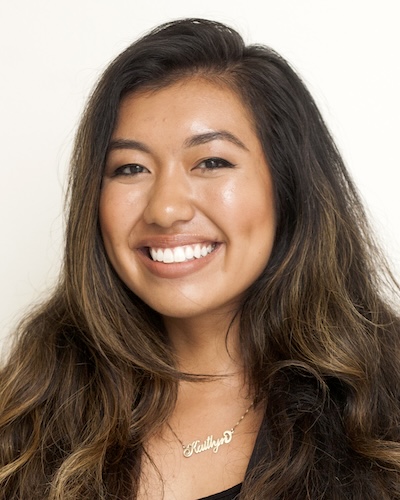
OT in Oncology ⟩
February 15, 2018, by Kaitlyn
Getting Involved What are OS/OT?
I have met a lot of amazing and inspiring people during my journey to becoming an occupational therapist. While I try to preach equality as much as I can, there is still one patient that remains one of my favorites to this day. In my freshman year of college, I volunteered at USC Norris Comprehensive Cancer Center, where I met the woman who would spark my road to health care.
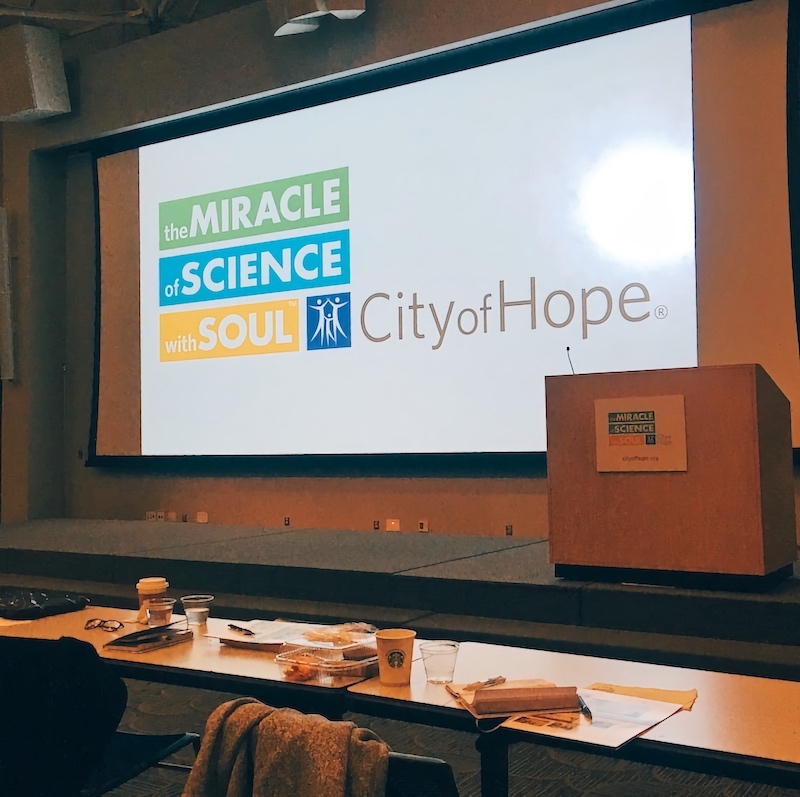
Without going into too much detail, she was the kind of woman who wore lipstick everyday even though symptoms and side effects of her diagnosis and treatment yielded a thinning (and nearly disappearance) of her lips. She told me countless stories about her life in her twenties and early thirties — all of places she had lived, all of the countries she had traveled to, and all of the men she had to date before she found her husband (this is my mini plug to say happy belated Valentine’s day!). She was such a light in my life at the time (and still is, to be quite honest) and my interactions with her and all of the other patients in that hospital are what solidified that working with patients in healthcare is what I wanted to do for the rest of my life.
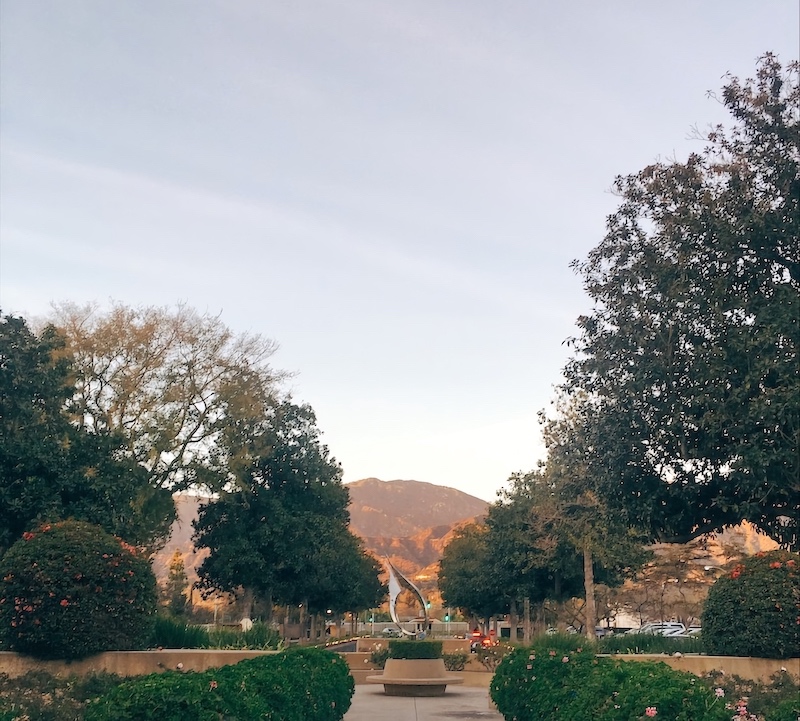
Golden hour outside City of Hope.
That was nearly 7 years ago (wow, how time seriously and flies!), and since then, oncology has always held a special place in my heart. As I continued OT school, I was so happy to discover that OT does play a role in cancer care as well. With that being said, a few weekends ago I attended the ‘OT in Oncology Symposium’ hosted by OTAC and City of Hope. This is the first time they’ve held an event like this on this topic, so I knew that I could not pass up the opportunity.
At this event I learned about a multi-pronged approach to cancer-related fatigue, pediatric oncologic OT in acute care, a comprehensive approach to address cancer-related cognitive impairments, evaluation and treatment of of chemotherapy-induced peripheral neuropathy, psychosocial interventions across the continuum of cancer care, and even how to manage cancer as a chronic condition using a Lifestyle Redesign® approach (lectured by our very own, Dr. Camille Dieterle).
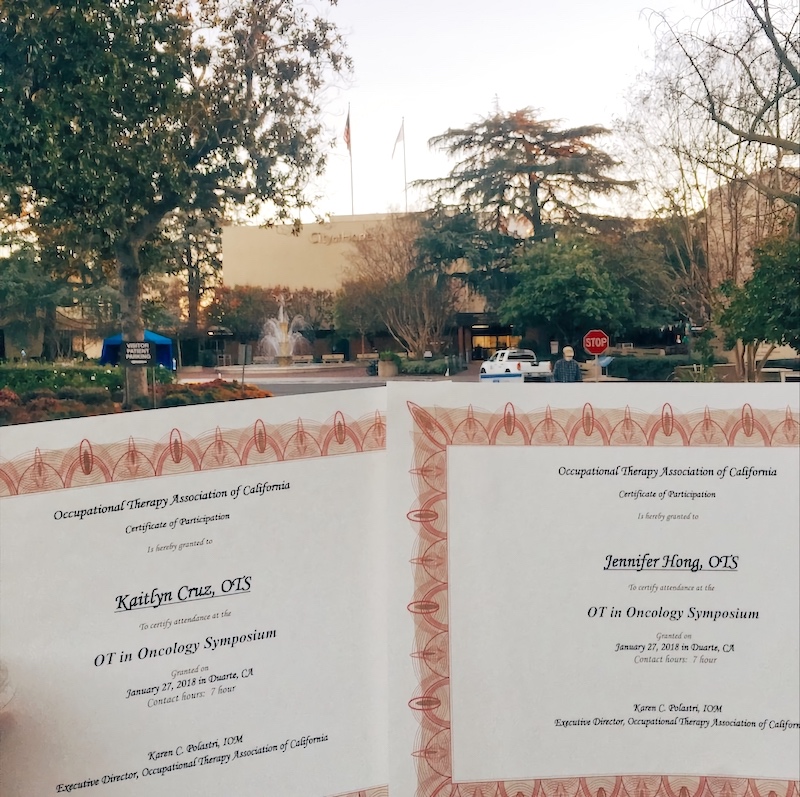
Symposiums are always fun with a friend! I went with Jen, a friend of mine who is also in the program.
Within these topics, I learned about how fatigue, as a result from cancer, can negatively affect cognition in patients’ everyday lives and how we, for example, can educate the client on how to take proper rest breaks throughout the day. I also learned about the importance of facilitating normalcy and encouraging toddlers with cancer to participate in play in order to yield a sense of autonomy and self, even in a setting like a children’s hospital. In addition, I learned different exercises (i.e., median nerve glides, overhead elbow active range of motion stretches, etc.) to incorporate into treatment sessions with patients to help reduce edema (swelling) and increase tissue circulation in the body. I learned a lot more but if I kept on going this blog post would be way too long!
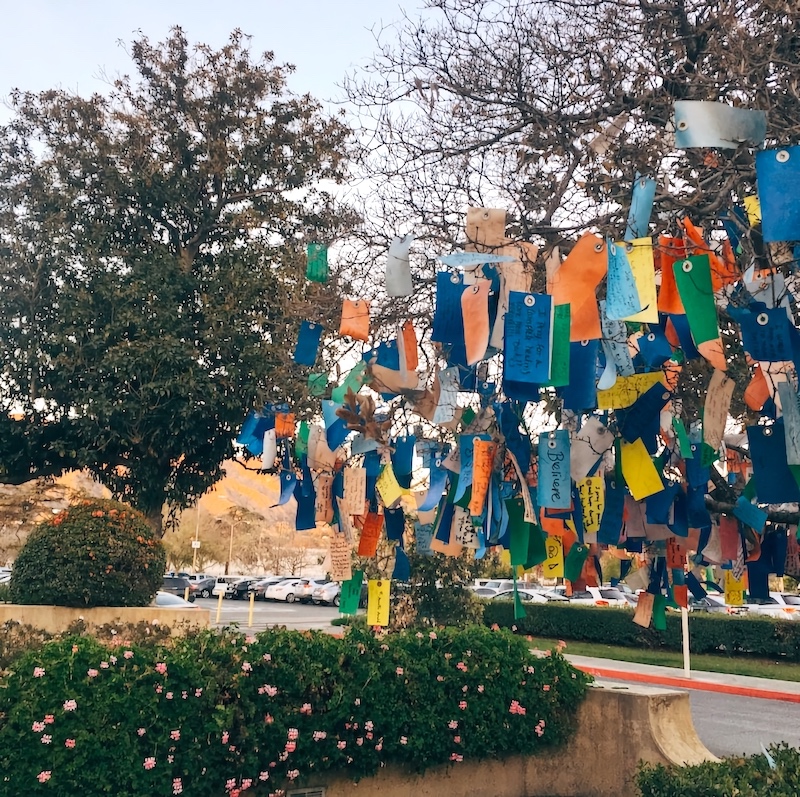
Outside City of Hope, there are trees you can attach written notes on. A lot of the notes had messages of hopes, wishes, and desires for loved ones.
One of the biggest takeaways I learned from this symposium is that in oncology care (and in any area, really), an extremely essential role for OTs is to present and instill hope in our patients. Yes, as OTs we assess and work on patients’ instrumental activities of daily living (IADLs), activities of daily living (ADLs), and range of motion (ROM), but an even more important role is that we aim to make our patients feel understood and really look at what roles are most impacted during this time in their lives. A role can be that of a mother who wants to be able to pick up her child, or it can even just be that of a woman who wants to be able to put lipstick on every day.
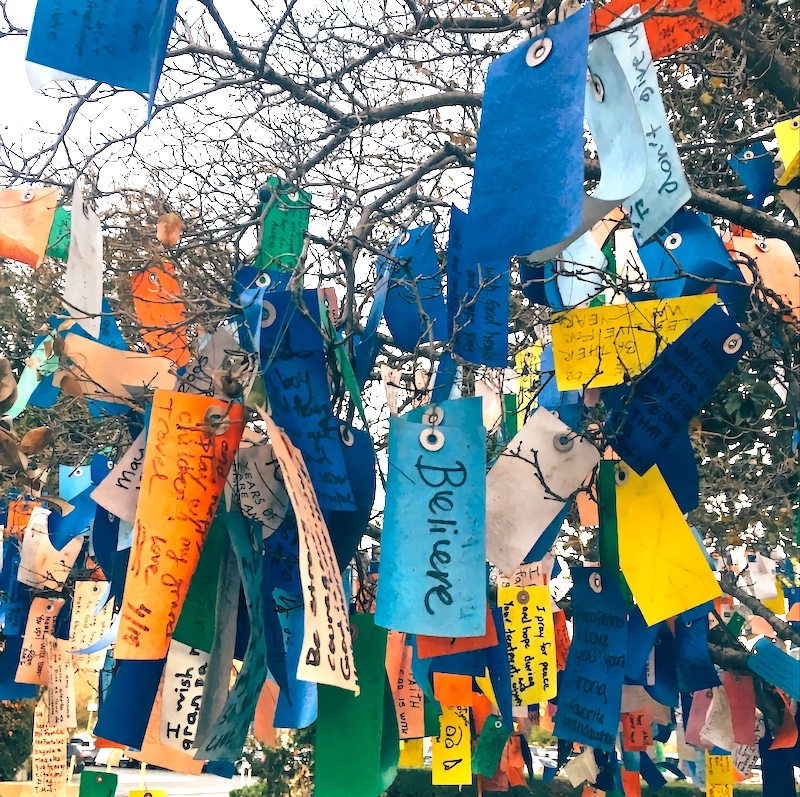
⋯
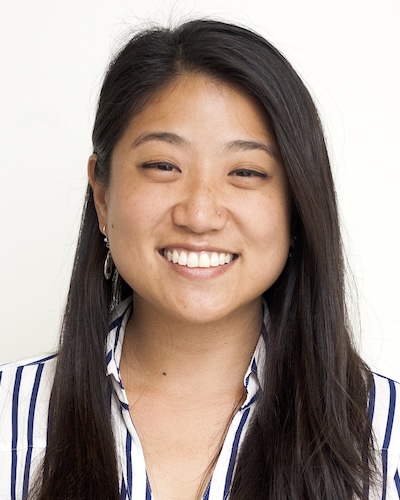
Sunday Brunch with My Mentor ⟩
February 14, 2018, by Erika
I know, I know, I sound like a broken record but I’m saying it again. The Division makes it a point to ensure that all students feel supported. One of the best ways they make this happen is through opportunities to form relationships with faculty. One the best ways they facilitate THAT is through the faculty mentor/student mentee program.
Every semester, all first and second year students are matched with faculty mentors. Typically, you are matched with your mentor according to the practice area you are interested in pursuing. As with many students, that can change with each semester so really, you’re given a great opportunity to have a mentor to reach out to as your interests shift. These practice areas can vary from your traditional adult rehab and pediatrics and mental health tracks to other non-traditional practice areas like academia, geriatrics, and research. It’s a great opportunity that the Division sets up to ensure that each student has direct access to a leader in OT that can provide guidance and support on whatever interest they may be pursuing.
This semester, I was paired with Dr. Don Gordon. He is an assistant professor of clinical OT in the Division and works in the inpatient unit at USC’s Keck Medical Center. He has also received his PhD in Occupational Science so as you can imagine, he has had a wealth of knowledge across the board — in clinical practice, academia, and research!
This past Sunday, he invited all his mentees to a brunch at his house! There were about 5 of us students that showed up and it was a really lovely experience. His wife Claire prepared the fluffiest pancakes any of us had ever tasted. We finally got to meet his son, Luke, who Dr. Gordon speaks so highly of during lectures. Unfortunately, his daughter Kyla was at a sleep over so we missed her but with all the stories Dr. Gordon and Claire shared about their kids, it was like she was there in spirit!
Brunch was really special. It was as informal as it was personal. It was one of those moments that felt like it lasted at most an hour but was actually 3 hours by the time we left! Time just flew. We discussed topics from our shared enjoyment of hiking and questions about what we’ve been learning in class to more philosophical conversations of whether motivational interviewing can be effective outside of therapeutic relationships. Whatever we wanted to discuss was able to be put on the table . . . next to the never ending stack of yummy pancakes.
I feel really lucky to have a mentor that has shown such dedication to forming a relationship and creating experiences with his students and I’m pretty sure I’m not alone in that sentiment. I hear there’s a hiking trip invitation coming our way soon from DG and I’m pretty stoked!
⋯
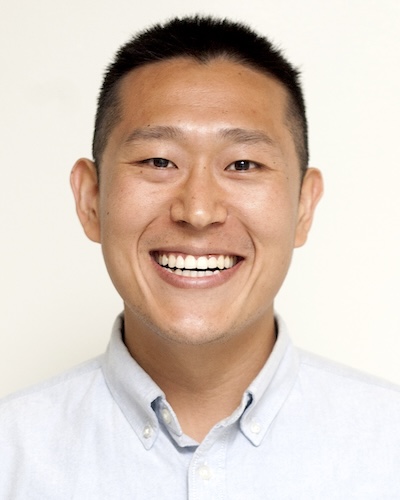
Shadow, Chance, Sassy ⟩
February 13, 2018, by Bryan
One of my favorite movies growing up was Homeward Bound (I think it is on Netflix). In the movie the owner of three household pets, two dogs and one cat, gets married and begins a new job in San Francisco, CA. As the owner relocates, he leaves his three companions on a ranch with extended family to take care of them. Drama unfolds, however, as Chance, a disobedient American Bulldog, begins to entertain the idea that they have been collectively abandoned to reside on this ranch till dog heaven. As the film progresses, both Shadow, the older and wiser Golden Retriever (I also named my first dog shadow!), and Sassy, a Himalayan cat, also begin to grow worrisome regarding the status of their owners.
From there, the three animals go on a rollercoaster journey, venturing into the thick of the Sierra Nevadas, following their instincts in a search for “home.” They encounter waterfalls, grizzly bears, porcupines, even incurring a few injuries along the way. Throughout it all, they they learn to band together through obstacles, trying to find their family.
Throughout this week, I have been thinking about Homeward Bound, dogs, and what gives a place meaning. I guess from an early age the idea of “home” fascinated me (as well as the love for dogs). Within our fast-paced culture driven by career changes from company to company, shifting communities, and wanderlust travels, I feel like home could easily get lost in experiences.
For one of our readings in OT 545: Advanced Seminar in Occupational Science, we read an article written by Ruth Zemke, one of our leaders in occupational science, who called for occupational therapists to consider what transforms a “space” into a “place” (Zemke, 2004). Zemke illuminates the distinction between a space and the unique meaning required to reinvision it into a place.
What are the important places in my life? What are the meaningful places in my patients’ lives? What makes a house a home?
As I sprint into halfway through my final semester of the entry-level master’s program here in the Chan Division, I am learning to reap the fruits of our curriculum emphasizing not only the clinical knowledge and therapeutic intervention as part of our patients’ recovery, but also the mindfulness and reflective thinking to understand them throughout that process. We as occupational therapists are gifted an opportune season in a person’s life in which life roles, physical abilities, and considerations of meaningful occupations might be transitioning, oftentimes starkly. Within these unstable moments, our reflections on an often ephemeral view of home might be the very incitation for us to take that next step forward. Maybe our therapy gyms or even hospital rooms can feel like much more than just space.

Shadow as a puppy
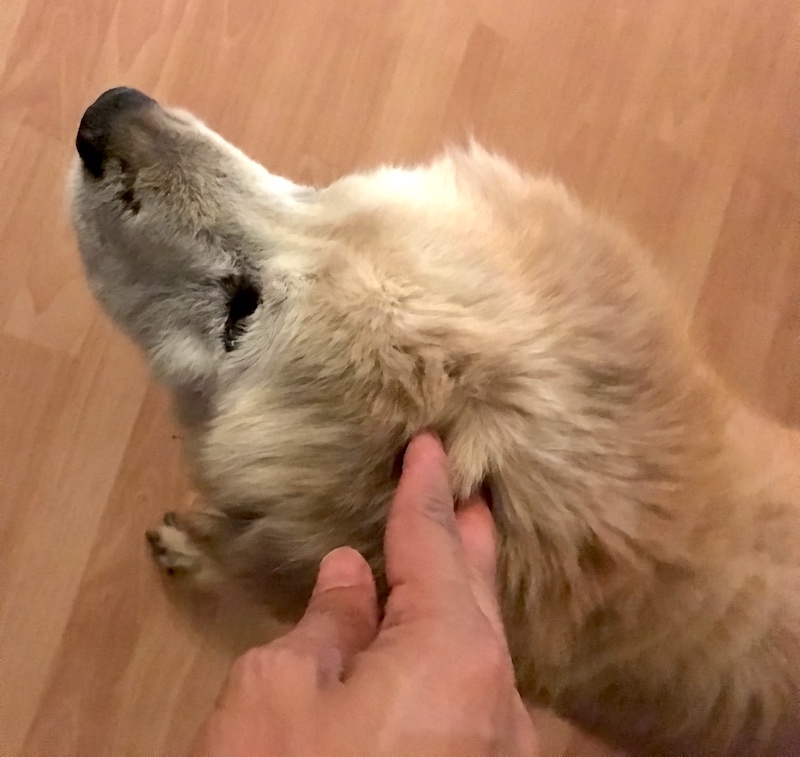
Shadow as an adult
⋯
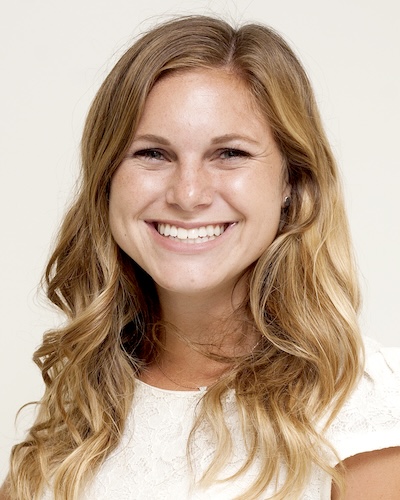
Los Angeles Living! ⟩
February 9, 2018, by Ali
Housing and Transportation Living in LA
The ambassadors and I have been receiving a lot of questions about where we live in Los Angeles to commute to the Health Science Campus (HSC) for class! I wanted to shed some light on my living situations and hopefully answer some of your questions.
My first year in the program I lived in a house within a five minute walking distance to the University Park Campus (UPC). I loved living near the main campus of USC with the undergraduate community I still wanted to be a part of. Around the main campus there is the new campus village which has everything from Target to Trader Joes to two Starbucks locations! I took the USC Intercampus Shuttle to and from the main campus to the Health Science Campus each day. The shuttle was convenient and a great place to take a nap or finish up some last minute homework. Living near the main campus was great for me because I loved running around that campus and taking the ten minute drive to downtown LA for some great food and nightlife! The OT House is also located near UPC, so there was a lot of OT friends nearby which is always great. See Caroline’s post to read more about the OT house!
For my second year I decided to move to Palms, which is a small neighborhood on the Westside of Los Angeles. The rent is affordable and I love being closer to the beach as well as the benefits of learning a whole new part of Los Angeles. My commute ranges from twenty minutes to fifty minutes by car depending on traffic. Although I am from a small suburb in Sacramento, California, I am already used to the traffic that Los Angeles throws at us. I’ve learned that leaving at 7pm versus 5pm can make the world of difference. I either stick around campus after class and study at the library to wait for traffic to die down or I turn on a podcast and use the longer drive as a time to recharge alone! I also live right on by a metro stop and can take the metro to explore LA easily, which is an added bonus to my relocation. To read more about moving to LA and navigating a this city without a car read Linah’s post! Living in Palms has also been a nice change because it is a little further form downtown so there is less congestion around my apartment and it feels more like a neighborhood!
USC OT students live all over Los Angeles. People live anywhere from across the street in Currie Hall (Pro tip: see Kaitlyn’s post about living in Currie Hall!) to Orange County. Everyone has his or her own solution to find the right space and place in order to be successful in graduate school. If you have any questions about housing please feel free to reach out!
⋯





